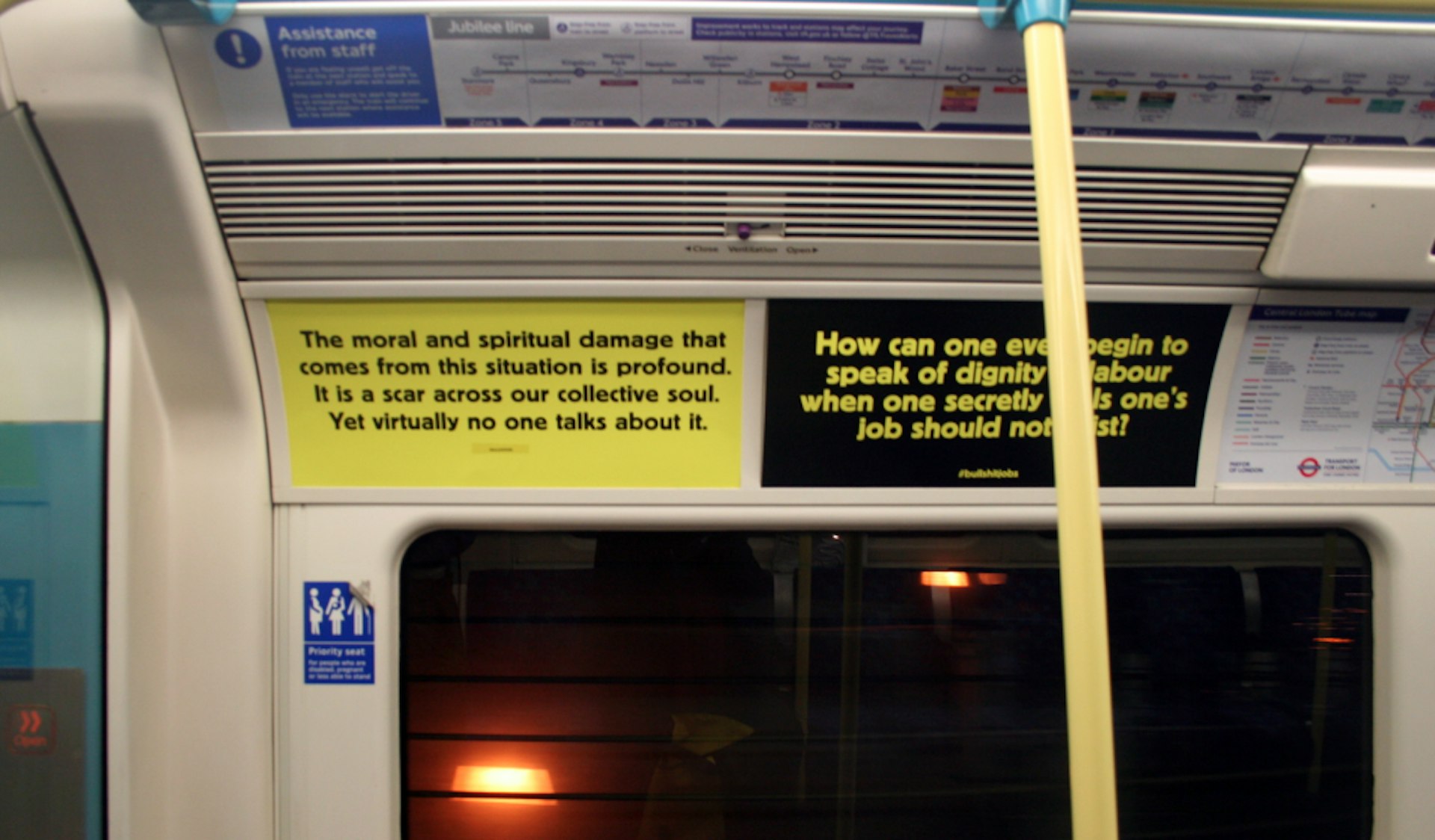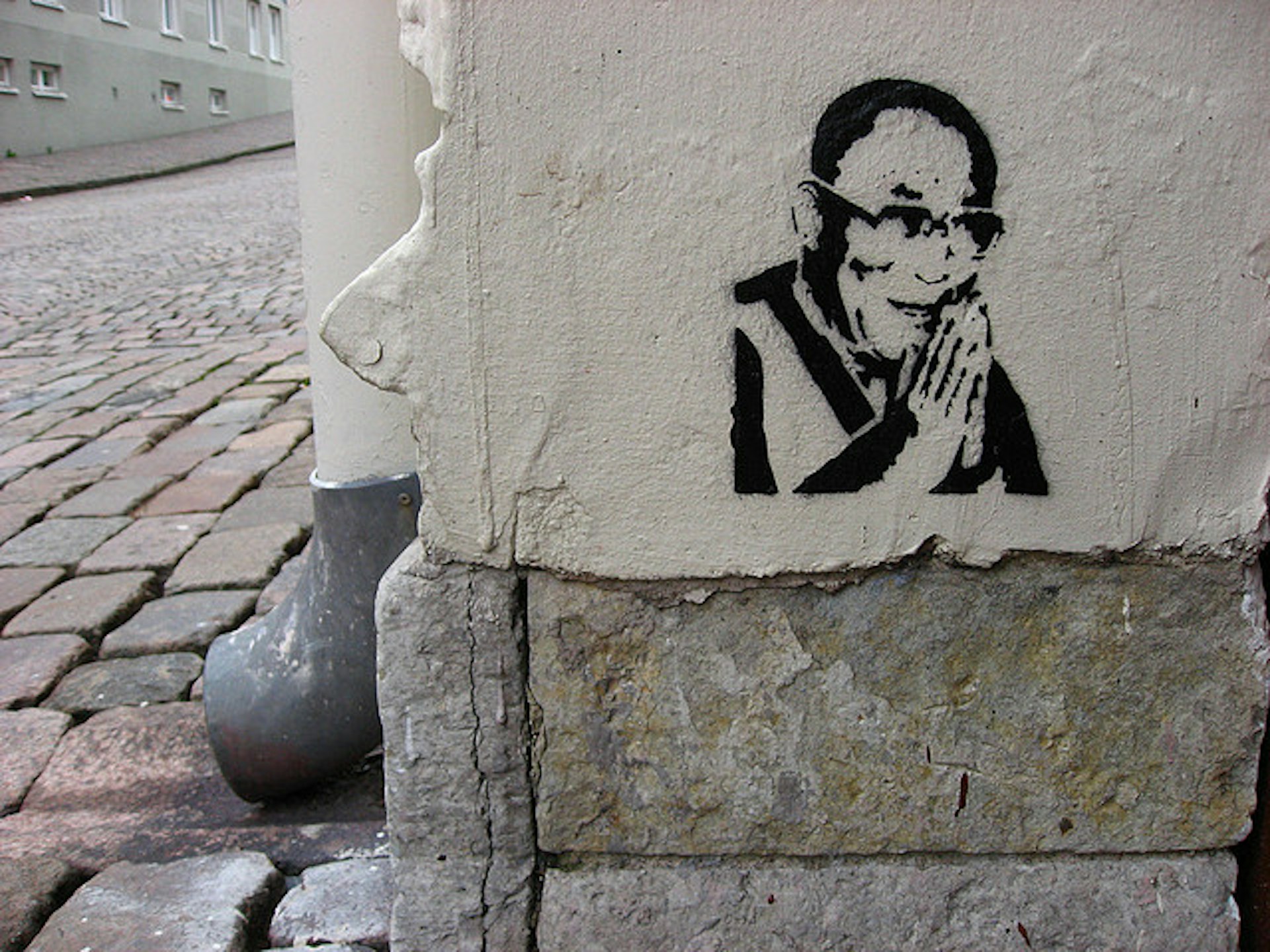
Activists highlight the pointlessness of bullshit jobs
- Text by Shelley Jones
Gloomy commuters in London got a bit of a shock on their way to work yesterday as they were met with strange ads on the London Underground highlighting the pointlessness of most of their jobs.
The provocative signs – saying things like, “How can one even begin to speak of dignity in labour when one secretly feels one’s job should not exist?” – were put up in secret by The Special Patrol Group, a militant wing of STRIKE! magazine that specialises in direct action.
The quotes are all from an article by anthropologist David Graeber published in STRIKE! – a bi-monthly newspaper that deals in “politics, philosophy, art, subversion and sedition” – in August 2013.
That article – which highlighted how technology has shackled us, not liberated us, from our desks – went viral and was shared by news media around the world.
Graeber’s essay took up the Marxist suggestion that the ruling capitalist class use surplus labour to exploit workers and keep them from ever rising up and rebelling against a system that subjugates them.
“Rather than allowing a massive reduction of working hours to free the world’s population to pursue their own projects, pleasures, visions, and ideas,” says Graeber, “we have seen the ballooning not even so much of the “service” sector as of the administrative sector, up to and including the creation of whole new industries like financial services or telemarketing, or the unprecedented expansion of sectors like corporate law, academic and health administration, human resources, and public relations.”
We caught up with a spokesperson from STRIKE! to find out more.
What was the reaction to the Bullshit Jobs article when you published it?
That article went viral in August 2013. It was translated into more than 15 different languages. It was republished by many different newspapers like Le Monde Diplomatique and The Sydney Morning Herald. And that’s just because it resonates with everyone who has a job. Everyone who’s employed can relate to that article in some way. We get almost no negative reaction to it. All of the reaction to that article is, ‘Oh my god, this is so true.’ We’ve had some interesting requests to use it. We made the article into a little pocket pamphlet and recently we had a request from a high school teacher in the US to send him fifty copies and now he’s teaching it to his high-school kids. A theatre company in Spain got in touch to say they’re doing a Catalonian-language version stage show of the article. I haven’t heard of many stage shows that are adaptations of articles.
Why do you think it has continued to be picked up?
It’s probably more relevant than ever to be honest. As people are working more and more hours, and wages are being ever squeezed and that’s not getting better, that’s getting worse.
How do you hope people react to the direct action yesterday?
Essentially we’re just asking people to think about the world they live in. We would hope that people would question a system that can land a spacecraft on a comet millions of miles away but can’t figure out the three-day week or eradicating poverty on this planet. We don’t want to tell people they have to feel bad about these things, we just want people to realise that everyone’s in the same boat, and we want to ask people to act collectively, to demand better things. If you want to work less, you’re going to need better wages. And the only way everybody gets better wages is by getting together with other people acting collectively and demanding better wages. We’re really alienated, we’re really isolated, and we want to break through some of that. We hope people will get together and demand more.
Are you calling for revolution then?
If I say that we’re calling for revolution you’ll probably write that we’re idiots. It’s a difficult word. What does revolution mean? It means change. Total systemic change. So yeah, we’re calling for change.
Read more about STRIKE!.
Enjoyed this article? Like Huck on Facebook or follow us on Twitter.
